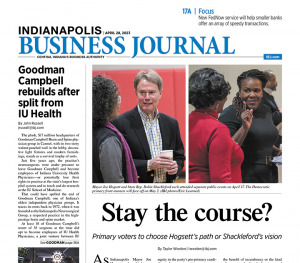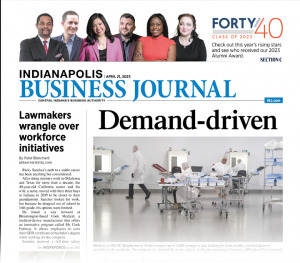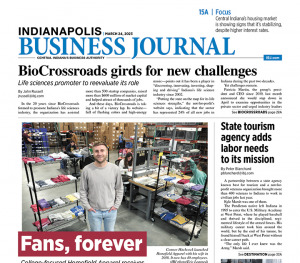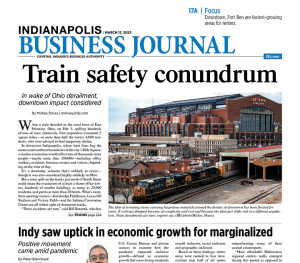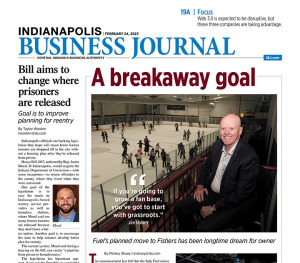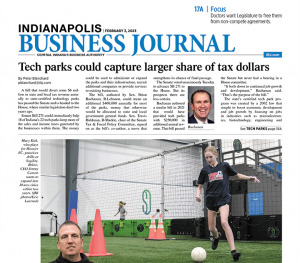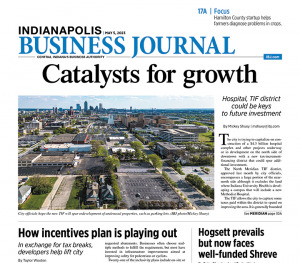
MAY 5-11, 2023
Indianapolis officials are trying to capitalize on construction of the $4.3 billion IU health hospital complex on downtown’s north side with a new tax-increment financing district that could spur more investment in the area. Mickey Shuey has more on the district, which was approved last month. Peter Blanchard explains how the business community benefitted from this year’s legislative session through tax relief, tax credits and other financial incentives. And this week’s Focus section features a new technology that lets corn plants signal when they’re in distress.

